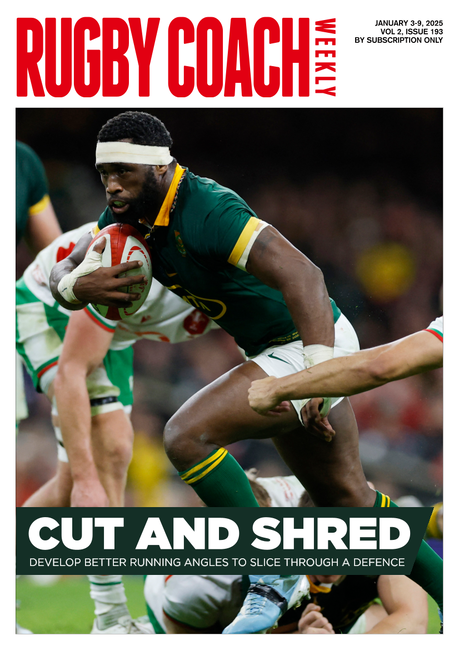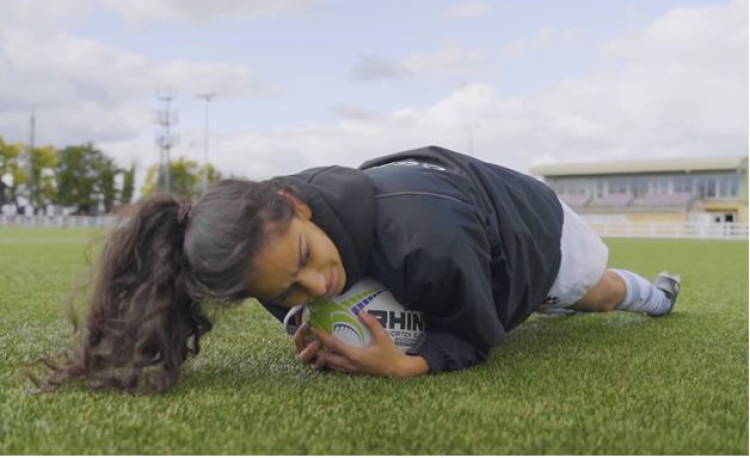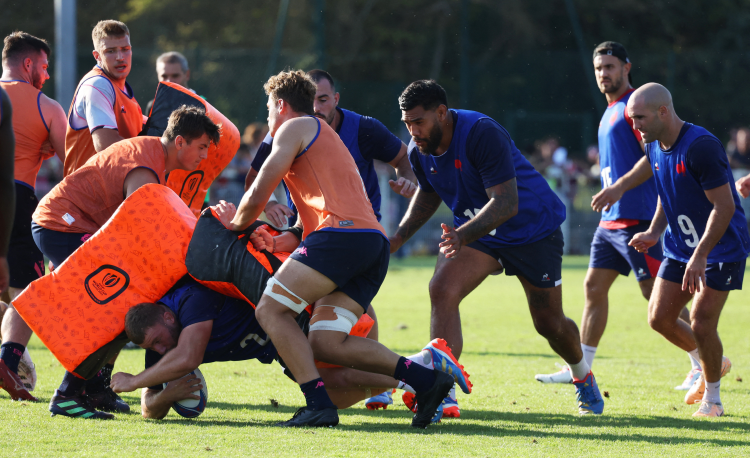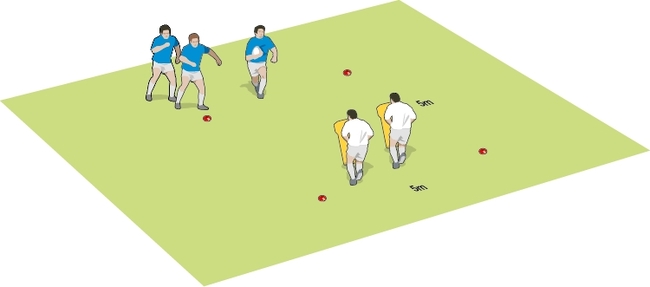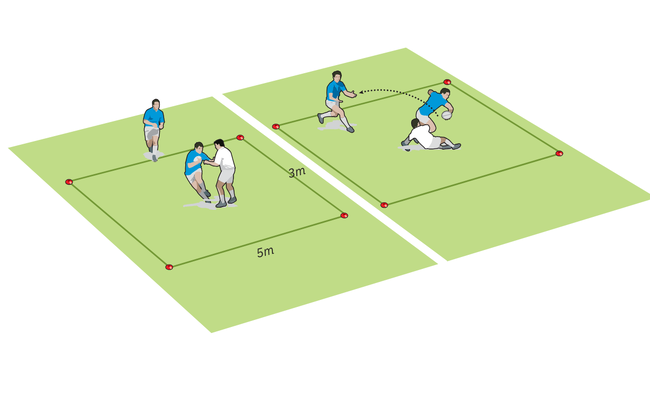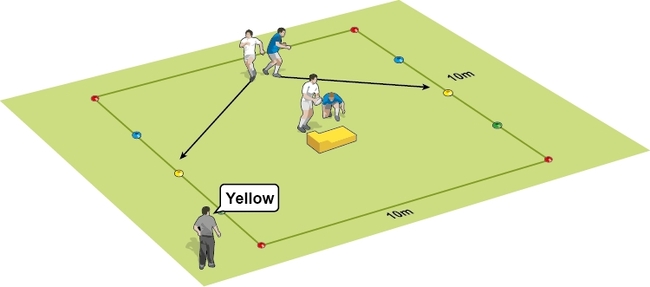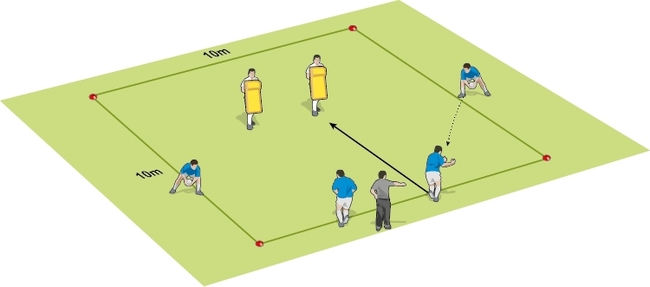Better continuity: Maori rugby insight
 To create continuity, your players need to understand their support roles. They also need to practise being innovative when it goes wrong.
To create continuity, your players need to understand their support roles. They also need to practise being innovative when it goes wrong.
KNOW THE PLAN
Support allows continuity of possession, whether from a pass or clearing out a threat at the breakdown.
The first attribute of a good support play is good knowledge of the game plan. From set pieces, all the players should know where the ball will be passed to and what the move will be. This helps forwards and backs understand their support running lines.
For instance, the openside flanker (7) will set a target for their support line and set off towards the probable point of contact with the opposition.
KNOW THE PLAYERS
The second attribute of good support play is knowing the way teammates play. A flanker, especially, will want to know how 10, 12 and 13 take the ball up to the defenders and then off-load. How do they hold the ball, are they likely to off-load the ball with one hand, how will they step before contact, and how might they present the ball.
I like the players to have “alliances”, where they are familiar with each other’s game to help generate their support lines.
SUPPORT PLAY: BALL CARRIER FIRST
Support play starts with the ball carrier and what they are likely to do. If we think in particular about the role of the ball carrier in the contact area, we want to consider the offload and ball placement skills.
We want players to work on their one-handed offloads. This helps us work into “channel one”, which is the space directly behind the tackler. The support player needs to read the movements of the ball carrier and then change their angle of run to take the pass and move into this space.
SUPPORT SEQUENCE
I use the following sequence of play to develop the support decision:
- The ball carrier, using footwork, creates a “weak shoulder”. This means the tackle will be made using an arm (due to a step or swerve away by the ball carrier), as opposed to the tackler using his shoulder. An arm tackle is far less powerful than a shoulder tackle.
- The support player makes a decision on whether he will receive the pass or move to clear out a threat.
The ball carrier needs to decide, should he have taken contact, which of three actions they will undertake once they go to ground. Their decision should be based on how close the support player is and how the ball carrier has fallen.

- Pop the ball to the support player because they are able to carry the ball away, ensuring fast ball and continuing the phase of attack.
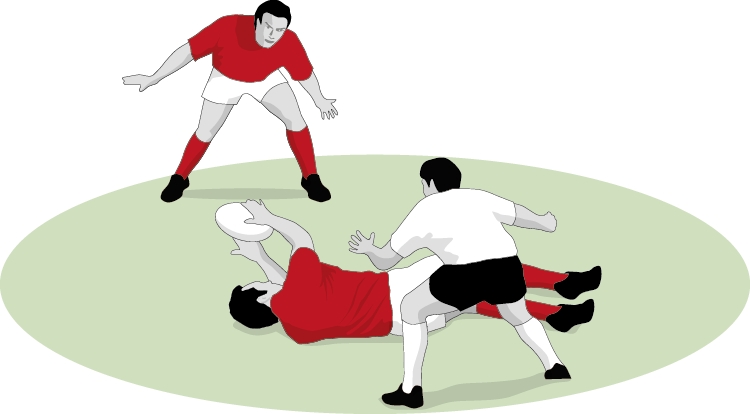
- Place the ball because a support player is very close and can protect them on the ground.

- Roll the ball back because the support players are not close enough yet.
Related Files
Newsletter Sign Up
Coaches Testimonials

Gerald Kearney, Downtown Las Vegas Soccer Club

Paul Butler, Florida, USA

Rick Shields, Springboro, USA

Tony Green, Pierrefonds Titans, Quebec, Canada
Subscribe Today
Be a more effective, more successful rugby coach
In a recent survey 89% of subscribers said Rugby Coach Weekly makes them more confident, 91% said Rugby Coach Weekly makes them a more effective coach and 93% said Rugby Coach Weekly makes them more inspired.
Get Weekly Inspiration
All the latest techniques and approaches
Rugby Coach Weekly offers proven and easy to use rugby drills, coaching sessions, practice plans, small-sided games, warm-ups, training tips and advice.
We've been at the cutting edge of rugby coaching since we launched in 2005, creating resources for the grassroots youth coach, following best practice from around the world and insights from the professional game.

